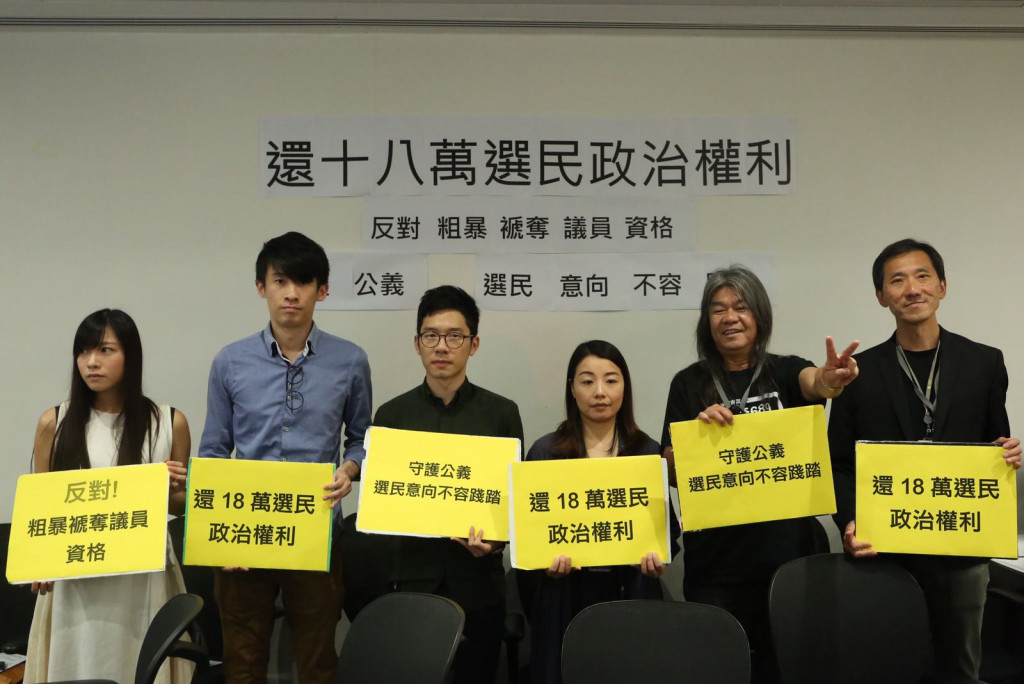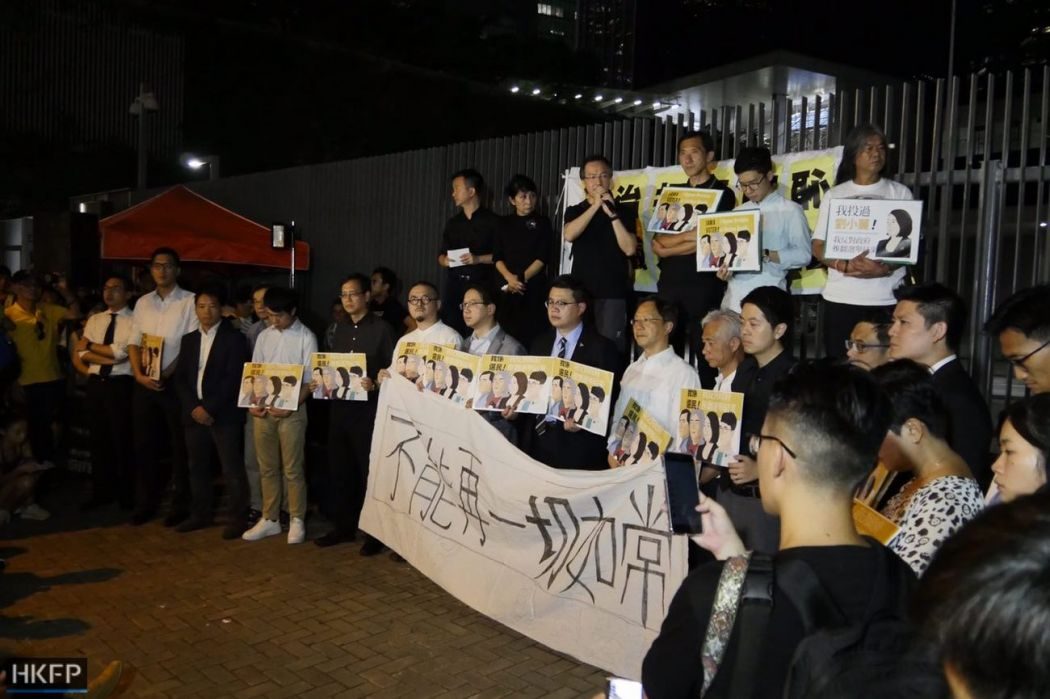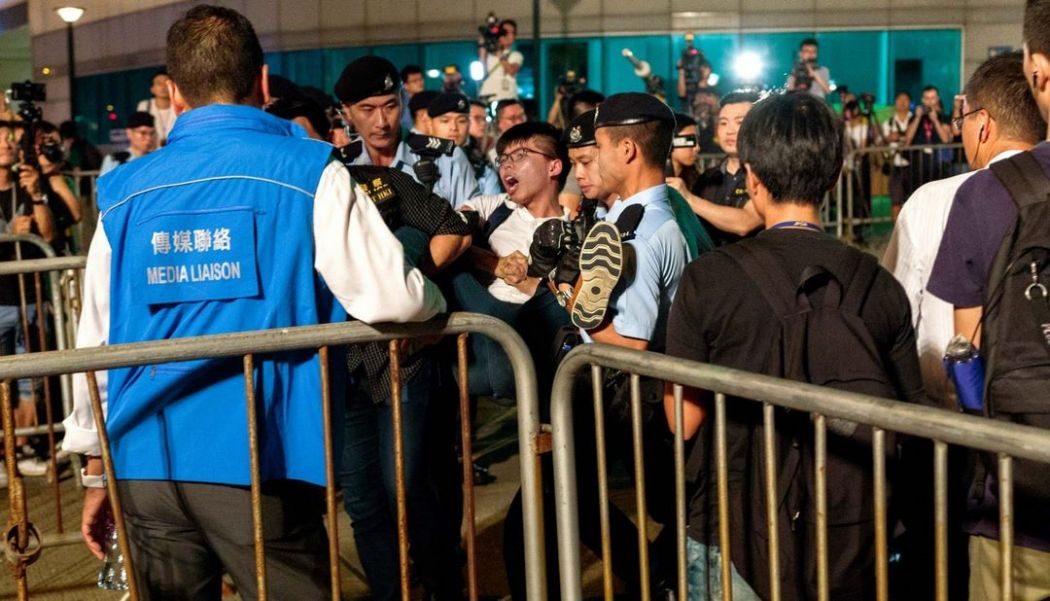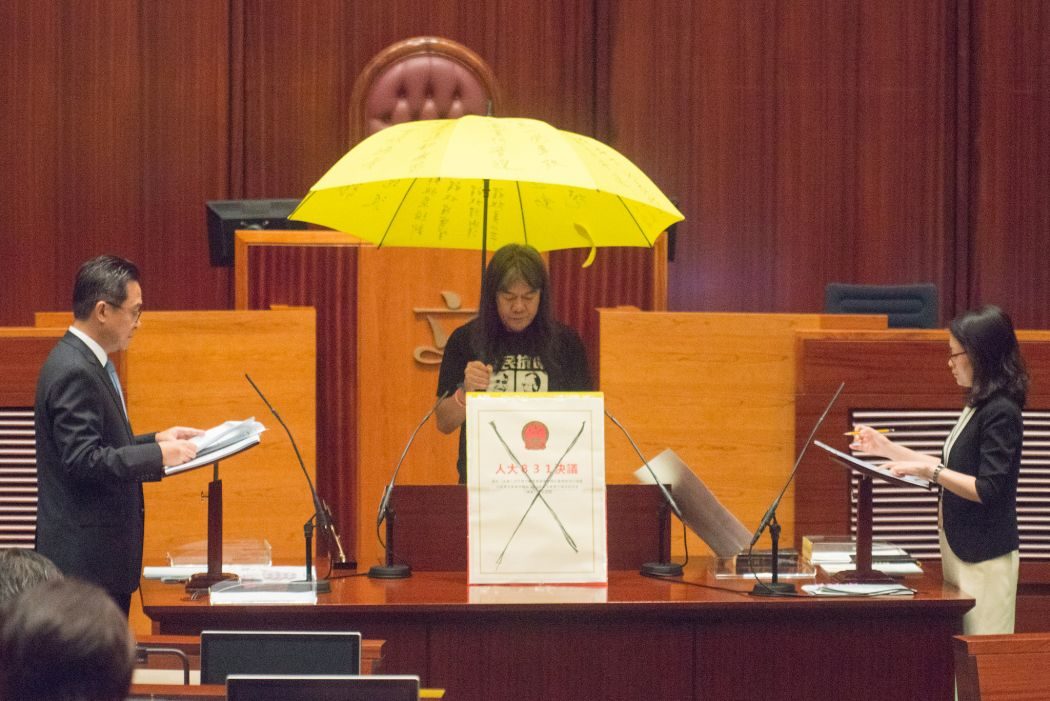In the ongoing battle for Hong Kong’s soul, the bad guys cloaked in dark suits (and now pink qipaos) and positions of power are clearly winning, and it’s hard to see a way forward for the beleaguered forces of light.
If there is one thing this summer of discontent has demonstrated, it’s that pan-democratic leaders from across the spectrum – young and old, radical and moderate, oath-taking and oath-mangling – have run out of workable ideas, strategies and appeals while Beijing has successfully tightened its hold on Hong Kong’s present and future.
The danger now is that ordinary Hongkongers – most of whom are keen to retain Hong Kong’s identity as the freest, most efficient and least corrupt city in China – will give up and turn away in despair from our dysfunctional politics and increasingly feckless opposition. And, of course, this is exactly what the Chinese leadership is hoping for.

Ever since the handover from British to Chinese rule 20 years ago, Beijing has waged a war of attrition that has today left pan-democratic politicians stripped of their veto power in the Legislative Council and the public battle-weary and disappointed with the leadership on all sides. By way of its canny interpretation of the oath-taking provision of the Basic Law, the central government has now seen “Long Hair” Leung Kwok-hung, long a histrionic thorn in the side of both central and local authorities, ousted from Legco, along with (including the radical localist pair, Yau Wai-ching and Baggio Leung, who last year were the first Legco oath violators to receive their marching orders) five other pan-dem legislators; moreover, nine additional lawmakers who also played politics with their oaths of office risk losing their seats in the future.
The banished politicians are considering the potentially ruinous financial cost of challenging their ousters in the Court of Appeal – where, given the new strictures of Beijing’s interpretation of the oath-taking ordinance, they are unlikely to win – and/or hoping for reelection in by-elections to be held to fill their now-empty seats.
They and their pan-dem colleagues have expressed shock and outrage over the court rulings that gave them the boot, hoping the public will share their anger and indignation and rise up in support. That’s not happening, however, because most Hongkongers, while embracing the long-term goal of democracy, are put off by the crude theatrics and counter-productive strategies that have become the tired trademarks of the pan-democratic camp.

Look at the losing position their hijinks have put us in at present. Twenty years after the handover, Hong Kong is in a dark place where its quest for democracy and struggle to protect its distinctive culture and the basic freedoms granted in the Basic Law have never been more under threat by a Chinese leadership that has outmanoeuvred the opposition at every turn and now, sensing weakness, is moving in for the kill.
The “red line” against challenges to central authority drawn by President Xi Jinping during his three-day visit to the city for the 20th anniversary of the handover signals an open season on those who make a melodramatic show of demeaning the Chinese leadership.
See also: Divided society, dysfunctional gov’t; an unsustainable situation with everything to play for

Former chief executive Leung Chun-ying, whose administration launched the court cases against the ousted lawmakers, was an unabashedly loyal foot soldier to the powers that be in Beijing during his five years in office. His successor, Carrie Lam Cheng Yuet-ngor, may employ softer rhetoric and appear less confrontational, but she was hand-picked by the central government to do Beijing’s bidding in Hong Kong, which is exactly what she will do.
There should be no illusions about that. Sadly, the first loyalty of Hong Kong’s leader is not to the 7.3 million people she is supposed to represent but, rather, to a Chinese leadership bent on bringing those people into the obedient fold of the Communist Party. That’s why it’s so important to have a credible, intelligent and effective opposition in and beyond Legco to counter this creeping authoritarianism and to truly represent the hopes and dreams of the people of Hong Kong.
Unfortunately, however, Hong Kong’s pan-democrats have turned our legislature into a theatre of the absurd and played directly into the hands of central authorities, who seek to discredit and diminish the opposition at every turn.

Hong Kong people will never warm to a government that imprisons people like Liu Xiaobo, the recipient of the 2010 Nobel Peace prize who died of liver cancer earlier this month after spending nearly nine years behind bars for having the temerity to call for more human rights, greater freedom of expression and democratic elections in China.
See also: We pay a price for China’s increasing prosperity – and the increasing fear of its leaders
The disgust in Hong Kong for the way Chinese authorities treated Liu and his wife, Liu Xia, who has disappeared since his death, was palpable. No amount of propaganda and patriotic education is going to change that, and no chief executive who refuses to represent the interests of her own people will ever win their confidence and respect.
There is plenty of need and room for a robust opposition in Hong Kong; indeed, never has that need been greater. But it’s time to put away the props, the toys and the empty sloganeering and get smart and get serious about defending the city’s core values and putting up a united front.
